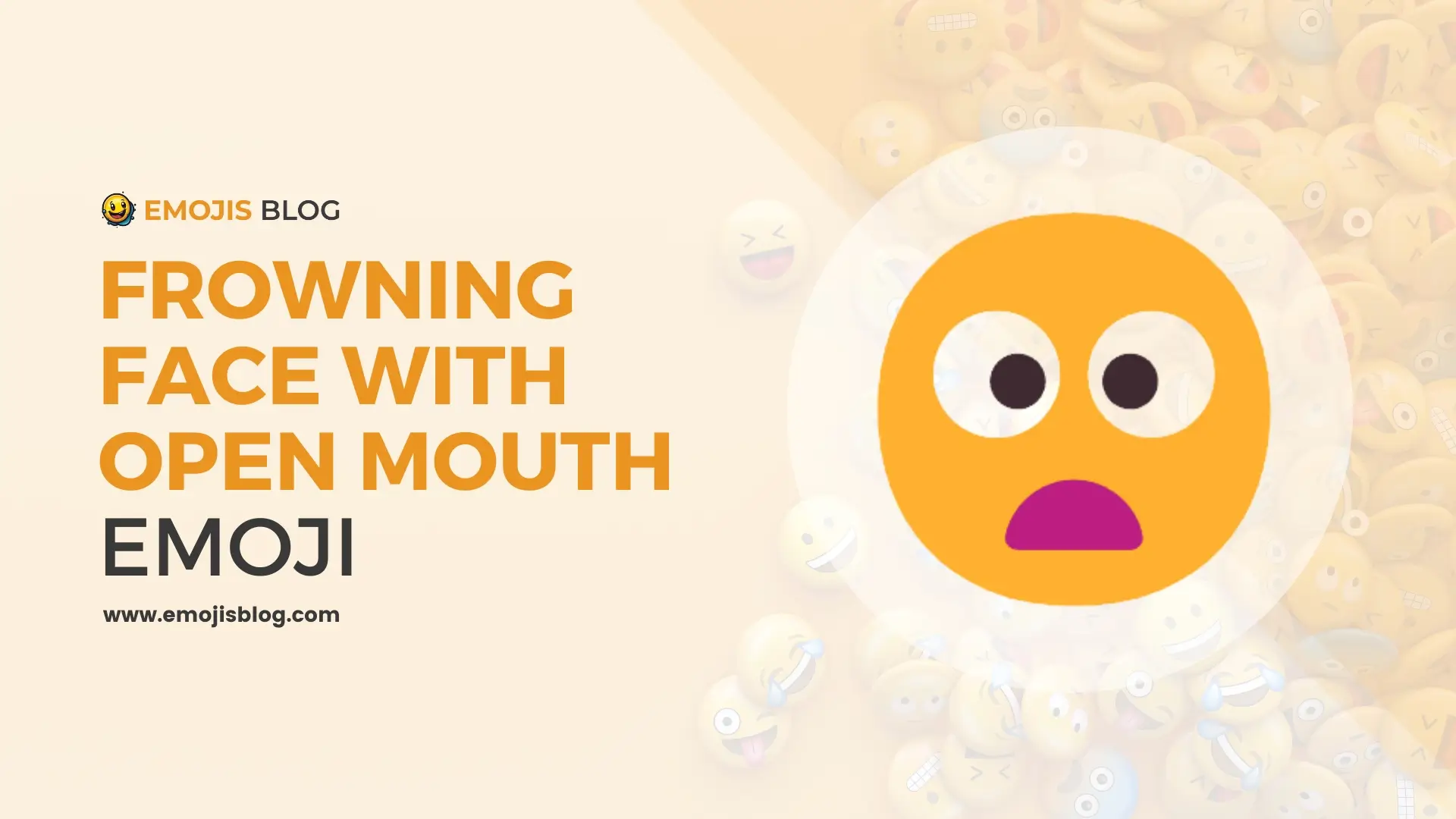What Does The Frowning Face With Open Mouth Emoji Mean 😦
😦
What’s a Frowning Face With Open Mouth Emoji 😦?
The 😦 emoji, known as the “Frowning Face with Open Mouth,” is a digital symbol used to express a variety of emotions, primarily surprise, shock, sadness, or disappointment. Its depiction of a face with furrowed eyebrows and a wide-open mouth captures a moment of emotional intensity, making it a versatile choice for conveying feelings of astonishment, concern, or empathy in text-based communication. This emoji serves as a nuanced tool in digital dialogues, allowing users to add depth and emotional clarity to their messages, where words alone might fall short. Its interpretation can vary depending on the context and cultural background of both the sender and the recipient, highlighting the complexity of conveying emotions in a digital format.
Technical Information
| Attribute | Information |
|---|---|
| Emoji | 😦 |
| Name | Frowning Face with Open Mouth |
| Unicode Version | Unicode 6.1 |
| Release Date | 2012 |
| Category | Smileys & Emotion |
| Subcategory | Face Concerned |
| Codepoints | U+1F626 |
| Shortcode | :frowning: (in some platforms) |
| Keywords | face, frown, mouth, open, sad, frowning face |
| Skin Tone Variations | No |
| Popular Platforms | Apple, Google, Microsoft, Samsung, WhatsApp, Twitter, Facebook, and most other platforms support this emoji in varying designs. |
Understanding the 😦 Emoji: Frowning Face with Open Mouth
The 😦 emoji, characterized by a frowning face with an open mouth, conveys a range of emotions and meanings that are deeply rooted in the context of its use. This emoji is part of the vast array of facial expression emojis designed to add nuance and emotional depth to digital communication. Below, we delve into the various interpretations and uses of the 😦 emoji.
Emotional Expressions
Surprise and Shock
One of the primary uses of the 😦 emoji is to express surprise or shock. This could be in response to unexpected news, a surprising fact, or an event that catches someone off guard. The open mouth symbolizes the speaker’s astonishment, mirroring the physical reaction one might have when surprised.
Sadness and Disappointment
The frowning aspect of the emoji often conveys feelings of sadness, disappointment, or concern. It can be used to show sympathy towards someone’s unfortunate situation or to express one’s own feelings of letdown or distress.
Concern and Empathy
The 😦 emoji can also communicate a sense of concern or empathy towards a situation or individual. Its expression can be interpreted as a non-verbal way of saying, “I’m sorry to hear that,” or “That’s concerning.”
Contextual Usage
Digital Communication
In texts, chats, and social media, the 😦 emoji adds emotional depth to messages, allowing senders to convey feelings that might be hard to express with words alone. It’s particularly useful in situations where body language and vocal tone are absent, helping to prevent misunderstandings.
Creative Expression
Beyond its literal emotional expressions, the 😦 emoji is sometimes used creatively or humorously. For instance, it might be employed in a playful context to exaggerate a reaction to something relatively minor, or in a sarcastic manner to mock an overreaction.
Cultural Variations
It’s important to note that the interpretation of emojis can vary significantly across different cultures and communities. What might be seen as a sign of shock or concern in one cultural context could be interpreted differently in another. This underscores the importance of considering the audience when using emojis in communication.
Conclusion
The 😦 emoji is a versatile tool in digital communication, capable of expressing a wide range of emotions from surprise and shock to sadness and empathy. Its effectiveness, however, is highly dependent on the context in which it is used and the shared understanding between the sender and receiver. As with all forms of communication, clarity and consideration are key to ensuring that the intended message is conveyed accurately.

